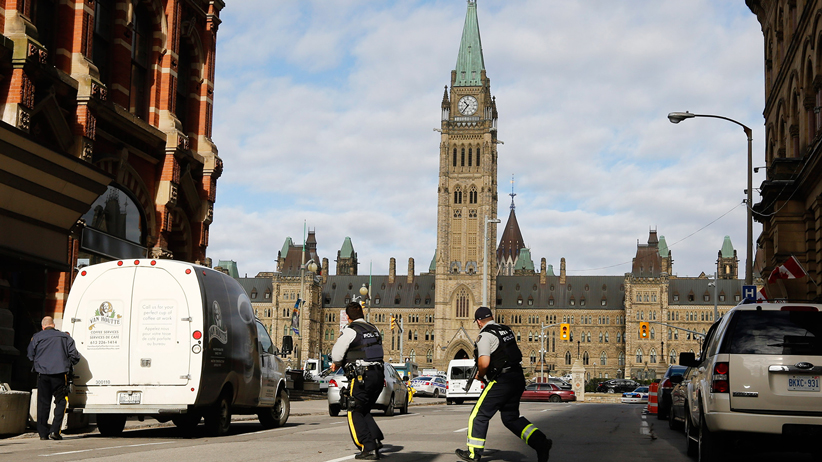Heightened security only increases our fears
Why the best response to the Ottawa shootings is to open Parliament to all Canadians
Share

You could hear the adrenalin in his voice. A journalist, who had been locked down in Parliament all day, was being interviewed about the tragic events in Ottawa. The gun fire, the shouts, the sirens, the hours of waiting, the rumours, the fear: all of this had understandably rattled him.
He spoke rapidly and demanded to know “What went wrong?” How could a terrorist walk into the very heart of our democracy with a gun? How did the police not stop this? How did our spies not predict this? Just last week Michel Coulombe, the director for the Canadian Security Intelligence Service (CSIS) had testified to a House of Commons committee that there were 80 Canadians who had travelled overseas to join banned terrorist organizations, and returned, and were now being watched as potential threats. “Why,” demanded the journalist, his voice rising, “are we not rounding them up right now?”
Even as events still unfolded in a confused downtown, the pressure on officials and politicians to “fix” security, to ensure this could never happen again, began to mount. But how could you ever truly prevent something like this? A mentally ill man, enflamed with the zeal of a new mania, running amok with a gun? You simply can’t.
You could build higher fences around Parliament Hill. But then the next one will shoot up a parade. You could put a rifle on every street corner. Yet the next one will use a grenade. You could pat down everyone coming into Downtown Ottawa. Then the next one will attack Rideau Hall.
It is hard to say and harder to accept. But there is nothing you can do to stop the fanatic. Eavesdrop on everyone? Read all our email? Bug every mosque? Armoured police vans? More metal detectors? We have seen this. And all of it, ultimately, is just as ineffective as the thin, fluttering yellow police tape which appeared overnight across Ottawa.
For Canadian security officials and politicians, it is almost impossible to accept this. They are under a heavy burden. Something must be done. Something. Unfortunately, the easiest and most instinctive thing for them to do is close something down. A street. A memorial. A gate. A city. Shut it down. Lock it up. No access.
It is understandable. Almost natural. But it is wrong. Encircling the national War Memorial with short metal fences protects no one. And worse, it actually makes us less secure, more frightened, less unified.
The morning after the horrific Oslo terrorist attack three years ago, the Norwegian Prime Minister Jens Stoltenberg declared that the only proper response was “more democracy, more openness, but not naivety.” That is what Canada needs now. That is what has made Canada great. It is not the height of our walls nor the impregnability of our buildings, it is our openness. As Paul Wells poetically wrote, “you can’t keep a country in lockdown, not while preserving the things that made the country worth having in the first place. Much like its capital precinct, Canada is a big open field, too.”
Before we demand that all the other potential terrorist suspects are rounded up, let us remember that it was the very issue of individual freedoms and the arbitrary seizure of “freemen” that led England’s barons to rise up and demand the Magna Carta, the beginning of the constitutional system that Canada cherishes so much. Ironically, by trying to safeguard our parliament, we would be undermining the ideals upon which it was founded.
Our leaders, and those who are charged with protecting us and our institutions should take down the police tape. Continue to be vigilant and prepared and, yes, be less naïve. But be more open. Remove the barriers.
Return the honour guard to the Tomb of the Unknown Soldier. Lower the fences so we can better see the Peace Tower. Invite Canadians back into its Parliament. Make Oct. 22 an annual open house. A day when all Canadians can walk through the House of Commons, to appreciate the carved stone and oak, to touch the now bullet-pocked walls of the Hall of Honour and to meditate on what it means to be both strong and free.